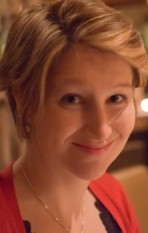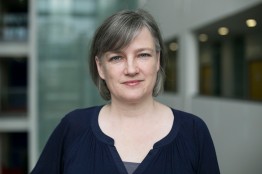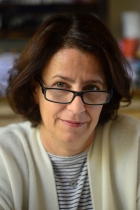Aysegul Kesimoglu, PhD student, City, University of London

Aysegul is a research student at City University London, her profile page and some of her publications and conference papers can be found at: http://www.city.ac.uk/arts-social-sciences/culture-and-creative-industries/research/research-students/aysegul-kesimoglu
Working thesis title: Gastronomy and Modernization: A case study of taste and eating out in Istanbul. (Title, work-in-progress) (Researching this since 2012).
City Research Online is the institutional repository or research database of City University London and this contains research outputs, articles, theses written by City academics and research students. Aysegul’s article ‘A reconceptualization of gastronomy as relational and reflexive’ is available from City Research Online at: http://openaccess.city.ac.uk/11908/
This article merges Aysegul’s previous research on food tourism with her current pursuits in food’s symbolic and positional value.
Aysegul was a co-founder of the SASS (School of Social Sciences and Arts) Research Students’ Society/Community at City. The society was founded in January 2014 with the hope and aim that it would provide a platform for networking between and professional development for SASS PhD students.
The City University London Library website can be found at: www.city.ac.uk/library
CityLibrary Search is a resource discovery tool which searches across a wide range of resources including books, electronic books, journals, journal articles and databases.
Aysegul recommends these books:
Ashley B, Hollows J, Jones S and Taylor B (2004) Food and Cultural Studies. London and New York: Routledge.
Caplan P (1997) Approaches to the study of food, health and identity. In: Caplan, P (ed) Food, Health and Identity. London and New York: Routledge, 1-31.
Counihan C and Van Esterik P (2013) Why Food? Why Culture? Why Now? Introduction to the Third Edition. In: Counihan, C and Van Esterik, P (eds) Food and Culture: A Reader. New York and Oxon: Routledge, pp. 1-17.
And, Warde, Alan. ‘Consumption, Food and Taste’.
The journal Food, Culture and Society is useful for studying the cultural aspects of food and gastronomy.
Read for Research
Since November 2013, City University London Library has been running a scheme whereby research students and staff can request that books for their research can be purchased via a webform. A blog post about Read for Research can be found on the Citylibresearchers blog. Aysegul has ordered some books via the scheme and has found this very useful.
Research tools
A useful tool for saving PDFs of articles and note-taking for collaborating with other colleagues or students is Evernote and Aysegul has recently started using this. There is a Researcher guide produced by City University London Library including a section on Social media and information about Evernote
Social media
Aysegul’s blog and Twitter feed.
Aysegul recommends following Discover Society on Twitter to remain aware of what other researchers are undertaking and what debates are important in general within Social Sciences.
Also find other researchers and journalists to follow. For discussions, see the hashtag #phdchat on Twitter
The Thesis whisperer is a useful blog for helpful tips on managing the PhD stress and especially for writing tips. The following articles are useful when starting a PhD:
http://thesiswhisperer.com/2011/02/01/advice-for-newbies/
http://thesiswhisperer.com/2015/10/14/a-half-way-through-your-phd-checklist/?utm_content=bufferfcf27&utm_medium=social&utm_source=twitter.com&utm_campaign=buffer
Other libraries
In terms of using other libraries, students and staff can join the SCONUL Access scheme and the national library, the British Library.
Advice to new researchers
“Read a lot and do not be scared to read around. Sometimes inspiring ideas come out of nowhere. But know when to stop. You will start the PhD full of ideas and will want to pursue a lot of things at the same time. You need to learn to control your enthusiasm and sometimes the only way to do is to stop reading and to take a step back and reconsider where you are, where you were coming from and which way you want to go. Build a good relationship with your supervisor, you will realize their advice is invaluable. Engage with your community and speak with people. A PhD does not have to be as lonely as it is often said to be.”










